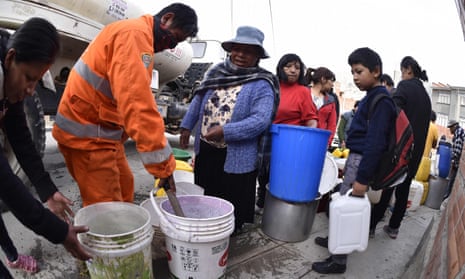Bolivia’s government has declared a state of emergency over the worst drought in 25 years, making funds available to alleviate a crisis that has affected families and the agricultural sector.
The vice-ministry of civil defense estimated that the drought has affected 125,000 families and threatened 290,000 hectares (716,605 acres) of agricultural land and 360,000 heads of cattle.
President Evo Morales called on local governments to devote funds and workers to drill wells and transport water to cities in vehicles, with the support of the armed forces, from nearby bodies of water.
“We have to be prepared for the worst,” Morales said at a press conference, adding that the current crisis was an opportunity to “plan large investments” to adapt to the effects of climate change on the country’s water supply.
The national state of emergency comes after 172 of the country’s 339 municipalities declared their own emergencies related to the drought.
Last week, residents of El Alto, near La Paz, briefly held authorities with a local water distribution company hostage to demand the government explain its plans to mitigate the shortage.
The drought has prompted protests in major cities and conflicts between miners and farmers over the use of aquifers.

Comments (…)
Sign in or create your Guardian account to join the discussion